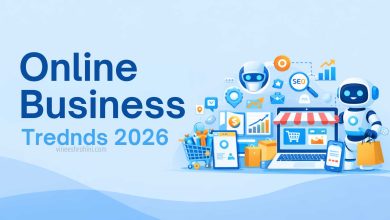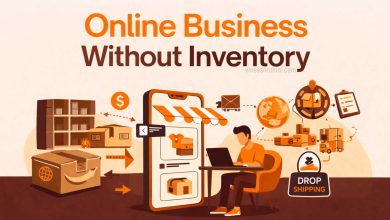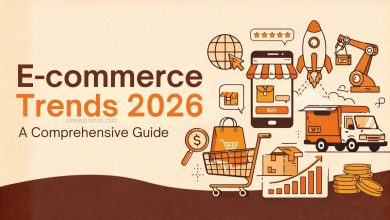“B2B vs B2C: Understanding the Differences in Online Business”
Businesses have always relied on different models of selling products and services. Two of the most popular models are B2B (Business-to-Business) and B2C (Business-to-Consumer). In recent years, online business has become increasingly popular, with many companies choosing to sell their products and services online. However, the B2B and B2C models of selling differ significantly in the online business world. In this essay, we will discuss the differences between B2B and B2C in online business.
B2B and B2C Explained B2B refers to the process of selling products or services to other businesses. In B2B, the products and services are designed to cater to the needs of other businesses. In most cases, the businesses that use B2B services are looking for solutions to improve their operations, increase efficiency, and save costs. For example, a company that sells software solutions for payroll management would typically use B2B services to sell its products to other businesses.
On the other hand, B2C refers to the process of selling products or services to individual customers. In B2C, the products and services are designed to cater to the needs of individual customers, rather than other businesses. In most cases, B2C companies sell products that are meant for personal use, such as clothes, electronics, and food.
Differences between B2B and B2C in Online Business
- Target Audience One of the main differences between B2B and B2C in online business is the target audience. B2B companies target other businesses, while B2C companies target individual customers. This means that the marketing strategies used by B2B and B2C companies are different. B2B companies focus on building relationships with other businesses, while B2C companies focus on building relationships with individual customers.
- Product and Service Offerings B2B and B2C companies offer different types of products and services. B2B companies offer products and services that are designed to improve the operations and efficiency of other businesses. These products and services are usually more complex and require a more detailed explanation than products and services offered by B2C companies. B2C companies offer products and services that are designed for personal use, such as clothes, electronics, and food.
- Marketing and Sales Strategies B2B and B2C companies use different marketing and sales strategies to sell their products and services. B2B companies typically use a more direct approach, such as email marketing or telemarketing, to reach potential customers. They also focus on building long-term relationships with other businesses. B2C companies, on the other hand, use a more indirect approach, such as social media marketing, to reach potential customers. They also focus on building emotional connections with individual customers.
- Decision-Making Process The decision-making process is different for B2B and B2C customers. B2B customers typically take longer to make a decision because they are looking for products and services that will improve the operations and efficiency of their business. They may need to consult with other decision-makers within their company before making a purchase. B2C customers, on the other hand, make decisions based on personal preferences and needs. They may make a purchase decision quickly, without consulting anyone else.
- Sales Volume and Revenue B2B and B2C companies differ in terms of sales volume and revenue. B2B companies usually sell products and services in large quantities, which means they have fewer customers but generate more revenue per customer. B2C companies, on the other hand, sell products and services in smaller quantities, which means they have more customers but generate less revenue per customer.
here’s a table summarizing the key differences between B2B and B2C models in online business:
| Feature | B2B Model | B2C Model |
|---|---|---|
| Target audience | Other businesses | Individual customers |
| Product offerings | Products and services for business use | Products and services for personal use |
| Marketing approach | Direct marketing and sales | Indirect marketing and sales |
| Sales process | Longer, more complex sales process | Shorter, simpler sales process |
| Decision makers | Multiple decision makers in a company | Single decision maker (customer) |
| Relationship focus | Long-term relationships with customers | Focus on individual transactions |
| Sales volume | Typically higher-value, lower-volume | Typically lower-value, higher-volume |
| Payment terms | Negotiated payment terms and contracts | Standard payment terms and options |
| Customer service | Dedicated account management and support | General customer support |
Conclusion
the B2B and B2C models of selling in online business have significant differences. B2B companies target other businesses, offer products and services designed to improve operations and efficiency, and use a more direct approach to marketing and sales. On the other hand, B2C companies target individual customers, offer products and services designed for personal use, and use a more indirect approach to marketing and sales. Understanding these differences is crucial for companies looking to succeed in online business. Companies must tailor their marketing and sales strategies to their target audience and product or service offerings. Ultimately, the success of a business depends on its ability to adapt to the needs and preferences of its customers, whether they are other businesses or individual customers.



